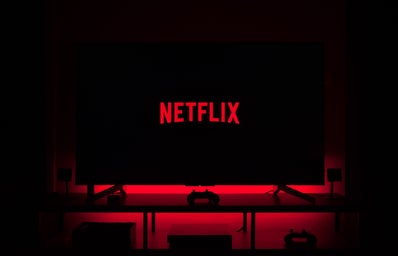Recently, I revisited the Netflix original series Orange is the New Black. Upon my first watch, I had seen myself in Flaca’s alternative spirit and love of the Smiths, Morello’s obsessive tendencies, and Daya’s sensitivity. But upon coming back to the series a bit older and a bit more self-aware, I came to a somewhat disturbing conclusion: I’m not even close to any of those characters. No, I’m Piper. I’m the often-hated anti-heroine, Piper Chapman.
Growing up, I attended a prep school in Riverdale, New York that was always fighting Harvard-Westlake for the top spot on the Forbes list of best private school. Sometimes we had to settle for number two but never dipped below five. Until I was sixteen, I took summer classes in journalism, Italian, European history, Arabic, forensic science, and a million others at Phillips Exeter Academy as my “summer vacation.” I wrote three novels before I was eighteen. I’m near-fluent in Japanese and speak a whole host of languages on the side. I currently attend an urban liberal arts college that calls “fiercely independent scholars” to apply, and my GPA at any institution has never dropped below a 3.5. I have always been special and I have always believed that to be the truth. I am special in my devotion to my relationships, my willingness to go the extra mile, my commitment to school and my dedication to a work ethic. There is something about me which is special. The world has told me that since I was a child, and I’ve just gone along for the ride.
Yet I always saw myself as an outsider in my community as a high schooler. I grew up in Washington Heights, a low-income neighborhood, and being a middle-class student from northern Manhattan at my high school of Upper East Side socialites made me feel like I was poor. My father also taught at my high school, making me feel like I didn’t deserve to be there. One of the most pointed comments an old friend made during a fight was “Not all of us can have a dad who teaches at our school,” implying that through school nepotism I got in over someone else more deserving. As a teacher’s kid, I felt intense pressure to perform extraordinarily both because of the concept that all of my teachers were friends with my father, and to prove that I really had gotten in on my own. Yet still I was not in the same ilk as students that had come up through Prep for Prep or full-ride scholarships, and I could not really define myself as a social outsider in the same way they could. Something struck me upon this philosophically enlightening rewatch of OITNB, and that was that I couldn’t have it both ways. I couldn’t play the “fish out of water” game because of isolation and pressure I felt, but at the same time I was thriving, and it would have been a complete falsehood to act as if private school wasn’t the place I belonged and thrived in.
The picturesque campus I went to high school on. Our middle and high school consisted of 6 buildings. You can see how it was the type of place to make you believe there was something about you that set you apart. Accessed here.
In a world where labeling yourself as a struggling outsider makes you cooler, makes you special, as a naïve teenager, I wanted to feel like I had a story. And I did. It just wasn’t the one I wanted. It was messy and complicated like most stories are. In order to be at peace with myself, I had to admit that I was a bougie New Yorker in the top 1% of American education. That I’m ostensibly upper-middle class, that I run in my vintage-store ankle boots to catch traffic lights and order the extra $1.50 avocado with my tofu burger. In other words, I’m Piper Chapman of OITNB and her social circle – educated, urban white people who are quick to generalize about the rest of the world and who believe that simply doing the right thing will be enough when times get hard and that apologies can be enough to make things okay.
One of the things that always bothered me at prep school was whenever someone got into their top college, Facebook commentators would hail them with “You deserve this so much.” That always seemed like a really odd thing to say to anybody, and in thinking about the American narrative of “specialness” I always came back to the concept of what people deserve. Saying you deserve something implies that regardless of how hard you work to get it, it comes to you by some divine providence, because you are special because you deserve it. I see this in Taylor Schilling’s portrayal of Piper Chapman; she truly believes she does not deserve to be in prison, and her fellow inmates understand something innate that she does not, which is that in the end it does not matter what you deserve. You make the best of the chances you have and do what you need to do. You meet people through chance. Even the greatest love of your life is not something you “deserved,” and one of the most loathsome things a partner can say is that someone “deserves better,” as it implies you don’t want to give what you know that person deserves. Because the truth is no one deserves suffering, and we all know that. No one deserves to be left out, to not be given chances that match their intellect, to be rejected. But people do get hurt, get dumped, get rejected from colleges, and lose spots at elite high schools, and that is so much harder to admit. Sometimes the world fails us and we fail each other, and in the face of pain like that, I don’t want to be told I’m special, that I deserve better. I just want to be seen as normal. As human.
Alex Vause (Laura Prepon) and Piper Chapman (Taylor Schilling) on Orange is the New Black. Accessed at The Telegraph.
My life has been my life. Classmates at my college often tell me “You’re so smart” and I never know what to say – I promise, as narcissistic as this might sound, it truly is not a humble brag and it is genuinely hard to formulate a response – because I know on some level I went to all of the right schools, was born in the right place, with the right amount of money, but I also feel that I should own it when someone compliments me and apologizing for privilege does nothing to help assuage already existing inequity. And that returns to the question of specialness. I wanted to create a story of struggle because I didn’t think others would think I deserved to excel without it. America loves a story of rising from the bottom to the top. Something simple, sensible. But instead, I want to offer a different view of my own life, instead of an upward climb as an ever-changing wave of ups and downs. A complicated picture. The problem of basing your self-worth on perceived specialness from the institutions you attended is that when you define yourself that way, you always have something to prove. And sometimes you can’t prove anything. Sometimes you’re just hurt, in ways, you don’t deserve, and sometimes you just make mistakes, in ways that you can’t take back and prove wrong. Piper learns this in prison with Alex, her ex-girlfriend, and with her friend Polly and ex-partner Larry, that she cannot somehow prove to them that she’s any different than they already think. No amount of intelligence and perceived specialness will get you past your own emotional walls.
All I can do is reflect on who I am and on the complex nature of how we develop our identities. I suppose the best moral I can offer is to be honest with yourself about your life. Don’t be ashamed if you’re Piper—if you’re a bougie white girl, if you could afford education others couldn’t. Instead, acknowledge that as your truth and your place in the world. Guilt and shame help nobody. Use your life for good. Ask questions and listen. And then when people ask, tell your story as it really is – no self-deprecation, only the truth.



